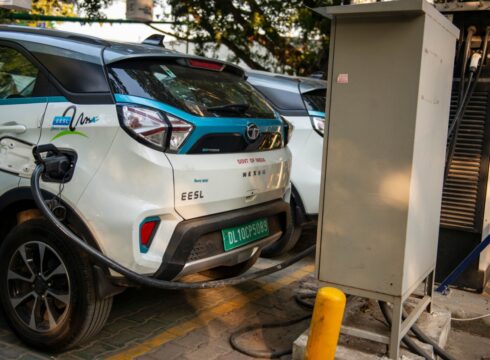A new alliance is being formed to help facilitate seamless payment and transaction interoperability within EV charging networks
This UPI-like system is aimed at streamlining payment processes and transaction compatibility across electric vehicle (EV) charge networks
The alliance includes companies such as ChargeZone, Pulse Energy, Kazam, Sheru, Trinity, and Turbo
Inc42 Daily Brief
Stay Ahead With Daily News & Analysis on India’s Tech & Startup Economy
A group of charging network operators and energy companies have joined hands to build a common transaction network for electric vehicle users.
The UPI-like platform, Unified Energy Interface (UEI), is aimed at streamlining payment processes and transaction compatibility across EV charging networks.
The alliance includes companies such as ChargeZone, Pulse Energy, Kazam, Sheru, Trinity and Turbo.
Leading public policy think tanks and research organisations such as the Rocky Mountain Institute and the World Resources Institute, will also join the consortium in an advisory capacity to advance the initiative.
For instance, ChargeZone has integrated its chargers with the UEI network, allowing for easy discovery and transactions.
Meanwhile, players like Kazam and Pulse Energy, serving as tech facilitators for UEI, have empowered their clientele to discover, pay for and utilise charging services across any UEI-enabled station seamlessly.
Raj Kumar, executive director, Trinity said, “Trinity has been a pioneer in such initiatives, like UEI, which aims for seamless integration at the backend. This approach improves convenience for EV drivers by eliminating the need for multiple access cards or accounts.”
Akhil Jayaprakash, CEO, Pulse Energy, said “We are a customer obsessed organisation, since the beginning days of Pulse Energy we have been nurturing the idea of an open energy network. To accelerate the world’s transition to EVs, we need interoperable systems, and do business with each other seamlessly.”
Reji Pillai, CEO, India Smart Grid Forum (ISGF) said, “With UEI, we could enable (peer-to-peer) P2P payments directly between the peers while the energy wheeling charges for the utility can be levied in the electricity bills by the utility.”
The UEI alliance is believed to help in promoting global development, adoption and adherence to unified standards for energy-related digital platform transactions.
Its key priorities revolve around increasing transaction volumes within the UEI network to boost efficiency and accessibility.
The UEI network has garnered approval from the department of science and technology in its latest e-mobility white paper. It’s built on the Beckn protocol, an open-source protocol developed in India. This protocol supports open networks like ONDC, UHI, ONEST, and others.
The Indian EV market houses various small as well as large EV startups and is estimated to reach $110.74 Bn by 2029.
Note: We at Inc42 take our ethics very seriously. More information about it can be found here.


